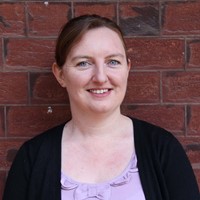Grateful to now be in the safety of Newcastle, Camille, 45, arrived from war ravaged Congo on 31 January 2019 with his wife Uwase Diane, two children, Ganza Mugisha, 5 and Burangi Stevo, 2 and nephew Mutebutsi Jean Paul, 20.
“I fled to Kenya to escape the war in December 2014, and was a refugee there before getting a resettlement in Australia,” Camille said.
The Democratic Republic of Congo (DRC) has been a country in turmoil for decades. In August 1998, a regional war broke out between the DRC government and Ugandan and Rwandan-backed rebels. As a result, approximately 1.8 million Congolese were internally displaced and around 300,000 fled to neighbouring countries. Much of the country remains unstable, and it is estimated that since conflict began in 1998, up to four million people have been killed.
Camille and his family were fortunate to be able to come to Australia. His sister is still in Kenya with her four children waiting for resettlement.
“The war has been going for a long time. It was a very bad life. They were shooting people. I was moving all the time, there was no stability,” Camille said.
Newcastle is the Australian Government’s city of choice for refugees with no other family in Australia, after being declared an official ‘Refugee Welcome Zone’ in 2015.
Newcastle has certainly lived up to that name for Camille and Uwase Diane.
“The people who I have met have been very nice to me. They are very caring,” Uwase Diane said.
“I want to stay in Newcastle forever, I like it here. In Australia we have a good life. It is peaceful and it is secure,” Camille said.
When asked what it means for his family to be here instead of Congo, Camille smiles and says, “Everything will be ok”.
They look forward to their children growing up in stability and safety and receiving a good education.
“Our son likes going to school so much. It makes us very happy,” Uwase Diane said.
For now Camille’s biggest challenge is finding employment.
“I am looking for any job to support my family,” Camille said. Prior to arriving in Australia, he had a variety of jobs, including as a French teacher, an embassy receptionist in Kenya, and a construction worker.
A devoted Catholic, Camille goes to Mass at Sacred Heart Cathedral, and it was through the church that he was linked with DARA (the Development and Relief Agency).
“I had contacted the parish office to ask about help finding work, and the receptionist put me in contact with DARA,” Camille said.
DARA is a registered charity that supports new migrants, refugees and asylum seekers in the Hunter community.
DARA’s Director Gary Christensen said it was vital practical ongoing services were available to ensure refugees had the opportunity to obtain work and support their families.
“When working with refugees and new migrants, our focus is on closing the gap between the supports that funded settlement services offer and the ongoing needs of our participants once these supports end, such as English lessons which we provide with assistance from volunteers,” Gary Christensen said.
Camille attends an English class at DARA headquarters, Mayfield, each Tuesday, along with people from various other countries. Teachers from St Francis Xavier College in Hamilton volunteer to teach the class.
For Camille, attending the class is more about inclusion and community, as he is already fluent in English. He assists fellow refugees with his knowledge of the English language where he can, sometimes acting as an interpreter.
Camille is open to any possibilities for work, so if you are able to assist please contact DARA.
There will be 270 refugees of all ages and from a number of countries, including Congo, arriving in Newcastle this year. Their primary needs are housing and employment.
When they arrive in Australia, refugees are provided with short-term accommodation only, generally for three months. Many of the refugee adults have a number of children and regardless of their previous experience or qualification, struggle to secure employment (of any nature) because of their limited ability to speak English. This in turn makes it almost impossible to access housing via the private rental market and also means they may continue to rely on government support, rather than supporting their family with a wage.
How the Hunter community can help:
- volunteer to teach English with DARA or practice English conversation in a casual setting, to help improve refugee’s social connections and likelihood of securing employment,
- donate warm clothing and blankets to DARA. Many refugees arrive in Australia with no belongings and struggle through the winter months, and
- if you are in a position to assist with training, employment opportunities, or housing for refugees, please contact DARA at www.dara.org.au.




























































































